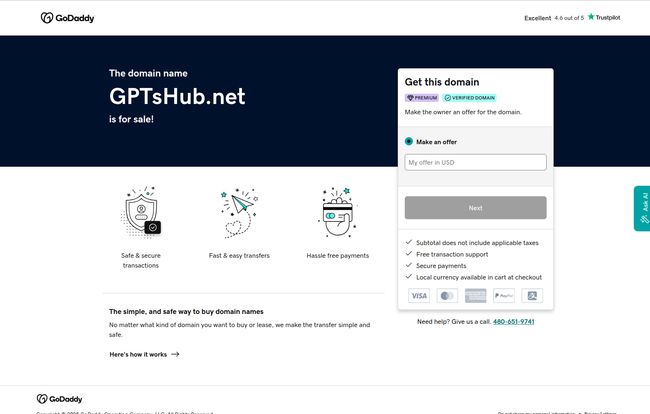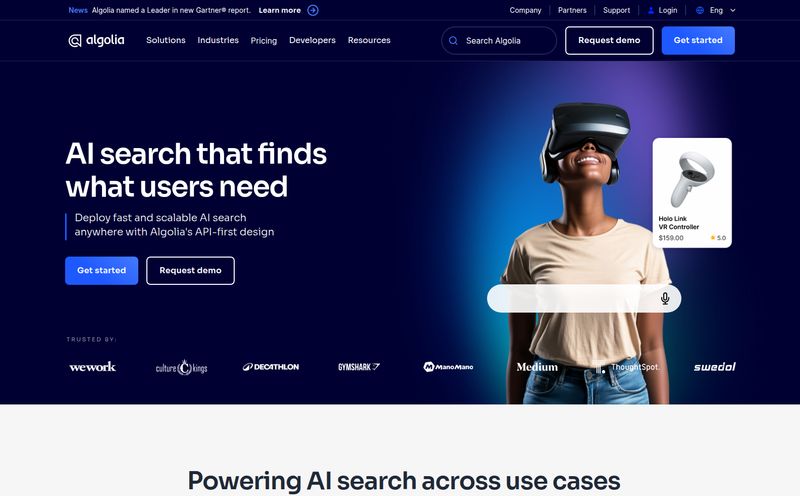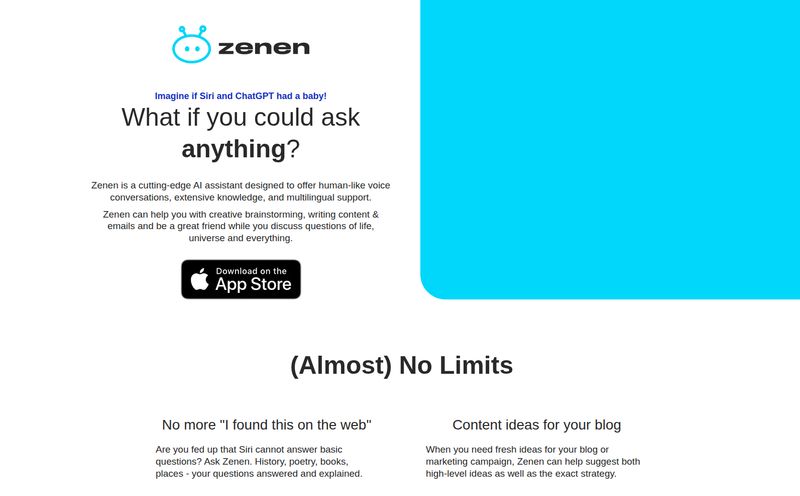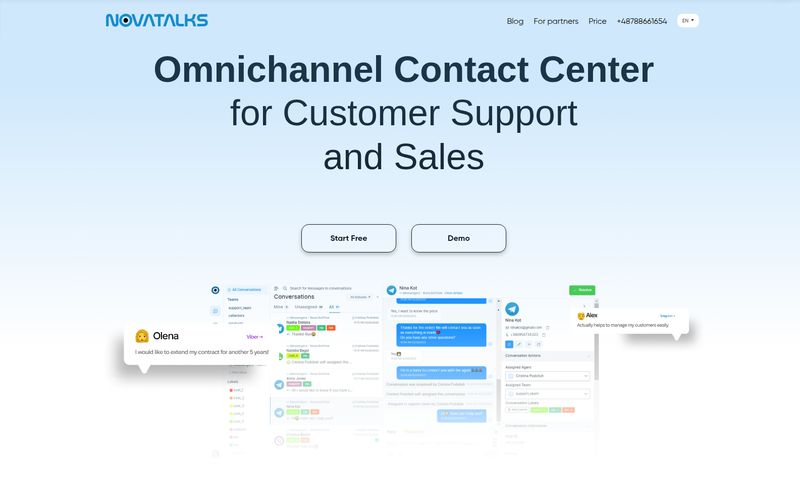Alright, let’s talk. If you've spent any time in the SEO and digital marketing trenches over the past year, you’ve felt the ground shifting. The AI boom, specifically the release of custom GPTs by OpenAI, felt like a new gold rush. Suddenly, everyone could build their own little AI helper. It was exciting! It was also… absolute chaos.
Finding a genuinely useful, well-built custom GPT in the official OpenAI store can feel like trying to find a specific needle in a stack of other, slightly different needles. It’s a mess. So, naturally, a whole ecosystem of third-party directories popped up, promising to be the curated, organized library we all desperately needed. One of those was a platform called GPTsHub, and I was genuinely curious about it.
The Alluring Promise of a Centralized GPT Library
Let's be real, the idea behind a platform like GPTsHub is fantastic. A single, go-to place to discover amazing GPT-powered tools? Sign me up. The official store is okay, but its search and categorization leave a lot to be desired. It’s like a flea market—you might find a treasure, but you'll have to sift through a lot of junk first.
A dedicated hub promises a better way. A place where tools are neatly categorized, maybe even vetted. You could find niche GPTs for everything from crafting social media posts to generating code snippets or even playing AI-powered games. This was the vision for GPTsHub: a clean, user-friendly portal to enhance productivity and unlock creativity without the headache. It sounded perfect, almost too good to be true.
So, What Was GPTsHub Supposed to Be?
From what I could gather, GPTsHub was designed to be a cleanly organized directory. It wasn't just a massive list; it was sorted into useful categories. Think AI games, specialized AI bots, and AIGC (AI-Generated Content) tools. The goal was to help you find the right tool for the job, fast.
The benefits were obvious. For creators, it was a way to get their custom GPT in front of a relevant audience. For users, it was a godsend—a way to cut through the noise. In theory, it would be a vibrant community, a hub of innovation where the best AI applications could shine. I’ve always believed that in any new tech wave, curation is king. The ones who can effectively sort and present the best stuff are the ones who provide the most value. GPTsHub was aiming right for that sweet spot.

Visit GPTShub
The Elephant in the Room: GPTsHub.net is For Sale
So, I went to check it out. I typed in the URL, ready to see this curated wonderland for myself. And I was greeted by… a GoDaddy landing page. “The domain name GPTsHub.net is for sale!”
Well, that's not what I was expecting. It's a bit of an anticlimax, isnt it? It’s like getting hyped for a new restaurant opening only to find an eviction notice on the door. What happened here? My mind immediately started churning through the possibilities. Did the project run out of steam? Was it a great idea that someone grabbed the domain for but never built? Or did they build it, and it just… failed to get traction before the domain renewal came up?
Honestly, this scenario is a perfect, if slightly sad, illustration of the volatile digital landscape we work in. Ideas are a dime a dozen, but execution and longevity are everything. And it got me thinking about the very real challenges of running a platform like this.
The Hidden Hurdles of Running a GPT Directory
Building a directory sounds simple on the surface, but it's a deceptively tricky business model, especially when you're building on someone else's platform.
The Curation Conundrum
This is the big one. How do you maintain quality? If you let anyone submit a GPT, you quickly become a mirror of the official store's chaos. One of the cons listed for a platform like this is, unsurprisingly, that the quality of GPTs can vary wildly. To be truly useful, a directory needs a human touch—people vetting submissions, testing for functionality, and writing actual reviews. That takes a monumental amount of work. Without it, your 'curated library' just becomes another junk drawer.
Monetization Mysteries
How do you make money from a free directory? There’s no clear pricing information for what GPTsHub was, which is a bit of a red flag. Do you run ads? Do you create a premium tier with access to 'exclusive' GPTs? Do you rely on affiliate links for something like the required ChatGPT Plus subscription? Monetization is a tough nut to crack without cheapening the user experience.
The OpenAI Factor
Perhaps the scariest part is that your entire platform is at the mercy of OpenAI. They could change their API tomorrow, update their terms of service, or launch a massively improved version of their own store, making your directory instantly obsolete. You’re building your house on rented land, and the landlord can change the rules at any time. Many custom GPTs require an API key or a ChatGPT Plus account, adding another layer of dependency and potential friction for users.
Is the Dream of a Perfect GPT Hub Dead?
Not at all. In fact, the apparent demise of a project like GPTsHub only highlights how much we still need a good solution. The problem hasn't gone away. If anything, it's getting worse as more and more GPTs are created every day.
A successful hub will likely be one that focuses. Instead of trying to be the directory for everything, maybe it becomes the go-to directory for marketing and SEO GPTs. Or for academic research. Niche focus allows for genuine expertise in curation. I would gladly pay for a service that I knew had truly vetted, battle-tested GPTs for my specific workflow.
The dream isn’t dead; it’s just waiting for the right approach. It needs a team that understands the long-term commitment to quality control and community building.
What This Means for You, the User
So, with GPTsHub being a ghost town, how do you find the good stuff right now? Dont despair. For now, we have to be our own curators. My personal strategy involves a mix of methods:
- Social Proof: I look for GPTs recommended by people I trust on X (formerly Twitter) or LinkedIn. If an industry expert I follow is raving about a tool, I’m much more likely to try it.
- Specific Search: Instead of searching for "SEO GPT" in the main store, I get hyper-specific. I'll search for "keyword cluster generator from SERP data" or "internal linking audit GPT." The more precise you are, the better your results.
- Creator-First: Find creators who build high-quality stuff and see what else they've made. Good builders tend to build more than one good thing.
A Tale of Potential and Digital Real Estate
In the end, GPTsHub serves as a fascinating case study. It represents a brilliant idea and a common pain point in our industry. Its current status as a for-sale domain is a stark reminder that even the best ideas require relentless execution, a viable business model, and probably a little bit of luck to survive.
The need for order in the AI chaos is more pressing than ever. While GPTsHub may not have been the one to solve it, its ghost reminds us of the opportunity that’s still out there, waiting for someone to finally get it right.
Frequently Asked Questions
- What was GPTsHub?
- GPTsHub was intended to be an online platform for discovering and exploring custom GPTs. It aimed to organize them into categories like AI games, bots, and content generation tools to improve user productivity and creativity.
- Why can't I access the GPTsHub.net website?
- Currently, the domain name GPTsHub.net is listed for sale on GoDaddy. This means the original project is no longer active or the domain was not renewed by its previous owners.
- Are there any good alternatives to GPTsHub?
- Yes, several other GPT directories exist, though quality varies. The best approach currently is to use the official OpenAI GPT Store in combination with recommendations from trusted sources, social media, and industry communities.
- Is it really that hard to find good custom GPTs?
- It can be. While many powerful GPTs exist, the official store's search and discovery features are basic. This makes it difficult to sift through the vast number of low-quality or duplicative GPTs to find high-value ones.
- What should I look for in a good GPT directory?
- Look for signs of active curation. This includes things like user reviews and ratings, 'editor's pick' sections, recent additions, and a clear, logical category structure. A good directory should do more than just list tools; it should help you evaluate them.
- Do I need a ChatGPT Plus subscription to use these custom GPTs?
- Yes, for the most part. Access to the GPT Store and the ability to use custom GPTs created by others is a feature of the ChatGPT Plus paid subscription.
References and Sources
- OpenAI's Official GPT Store
- GoDaddy Listing for GPTsHub.net (Note: This link may become inactive if the domain is sold or taken down.)
- TechCrunch: OpenAI launches the GPT Store



